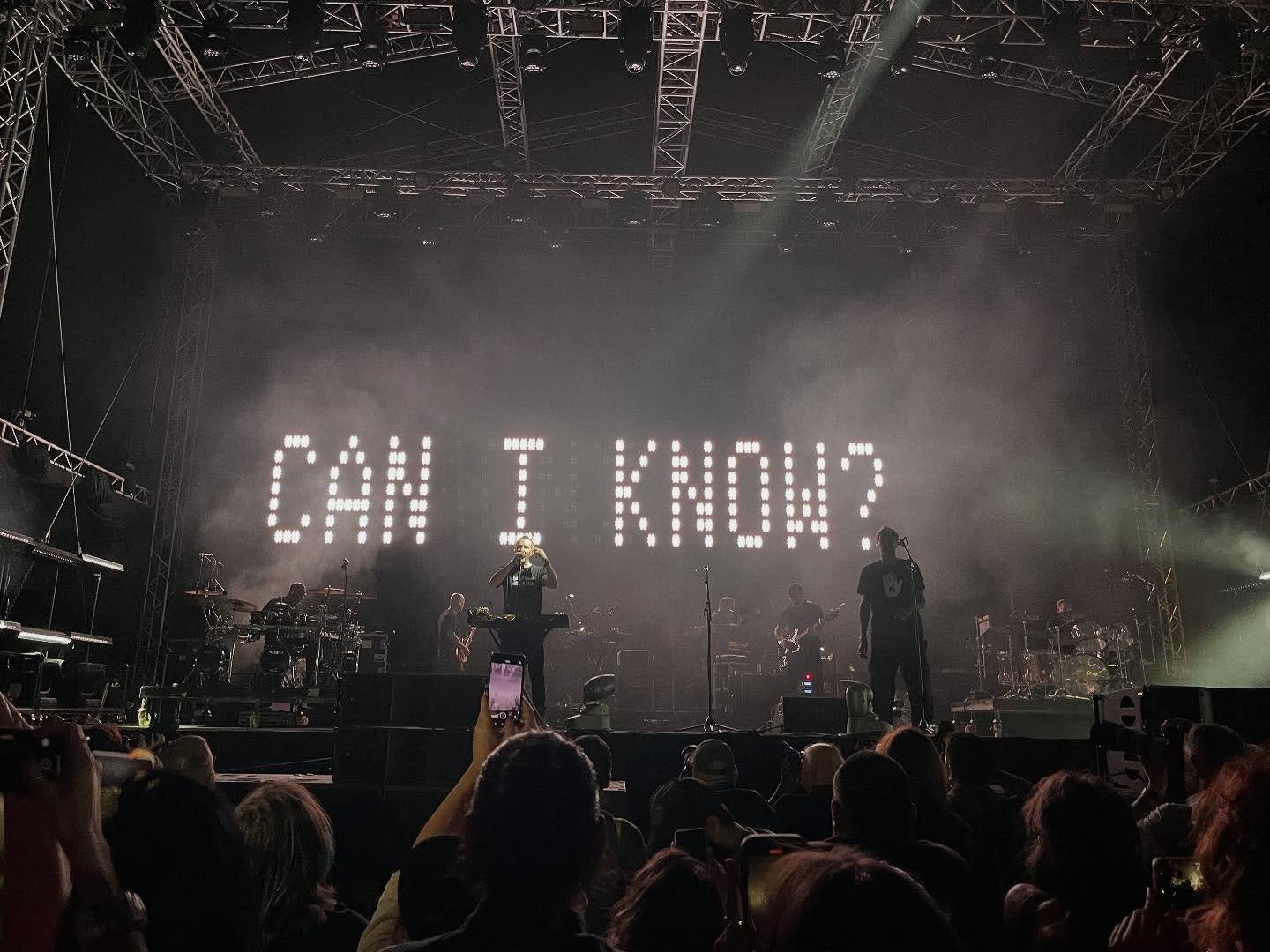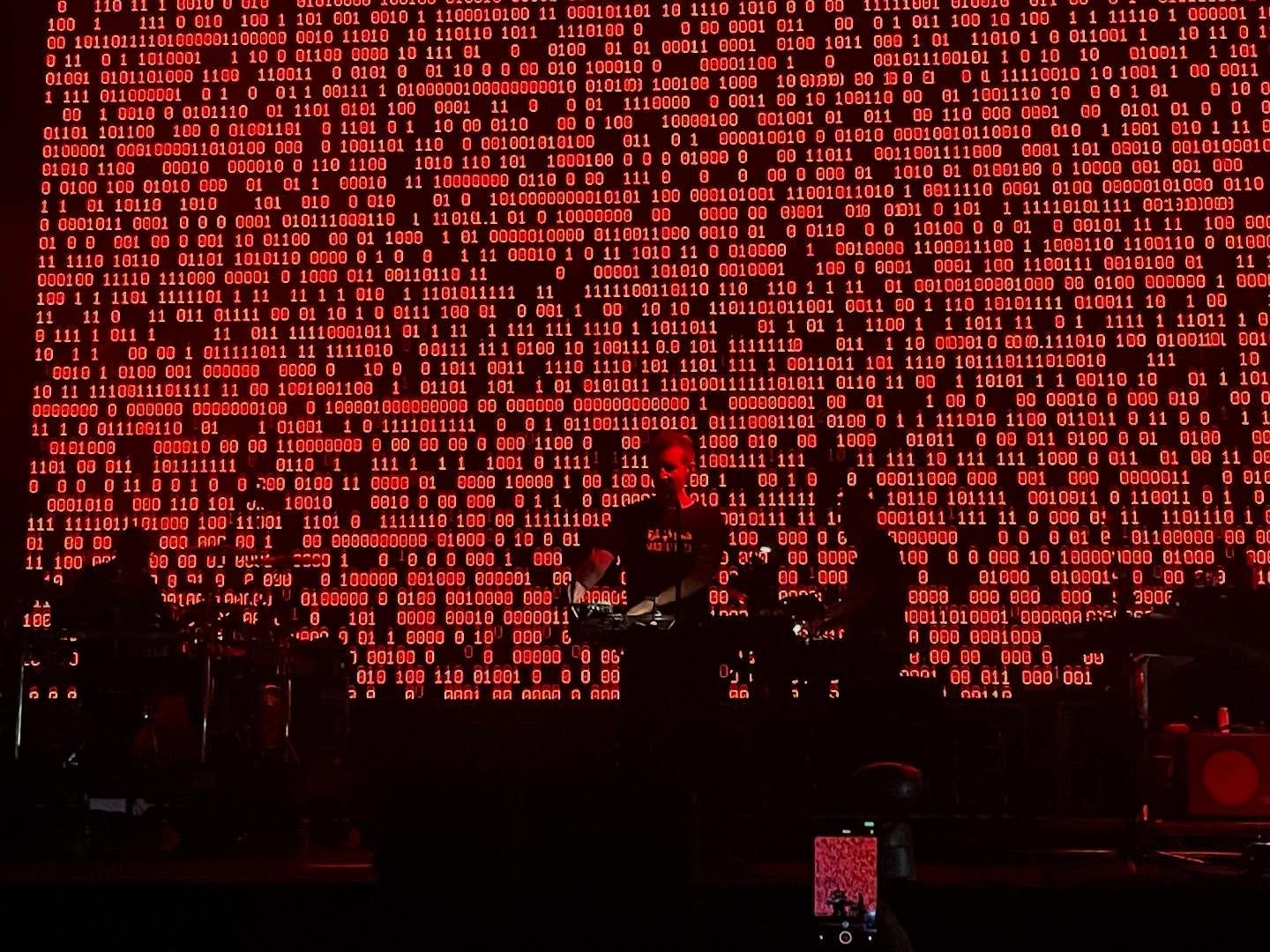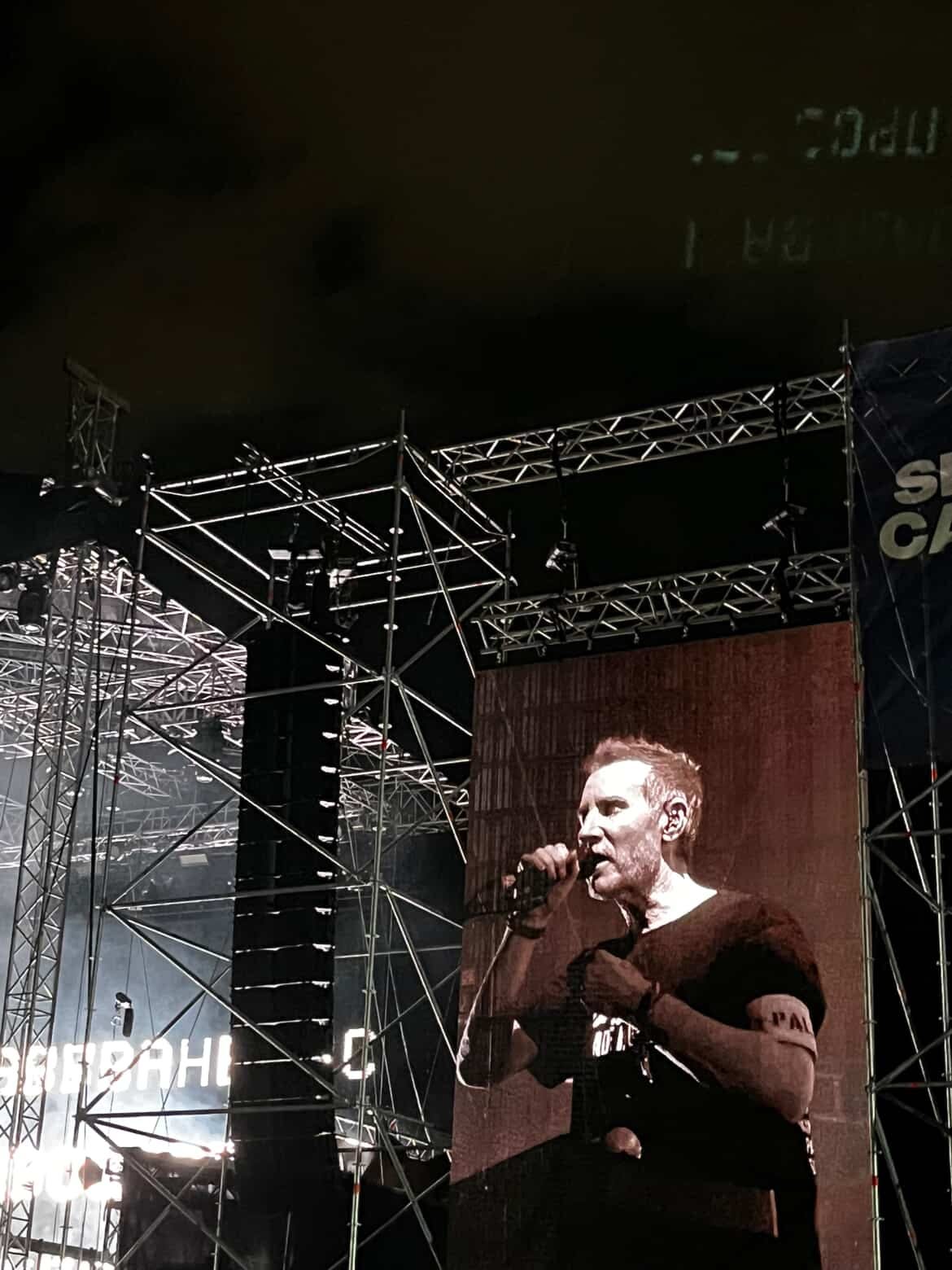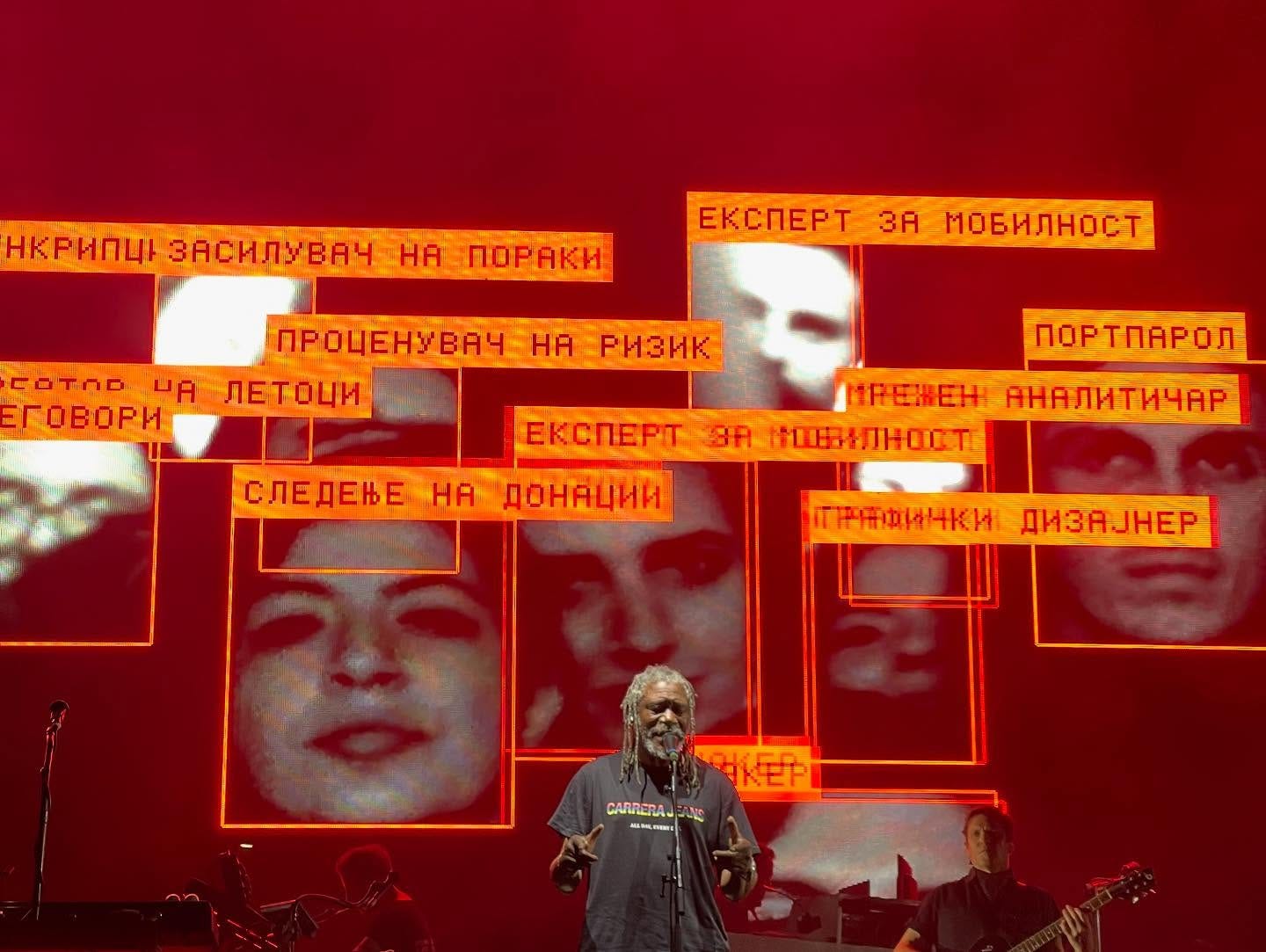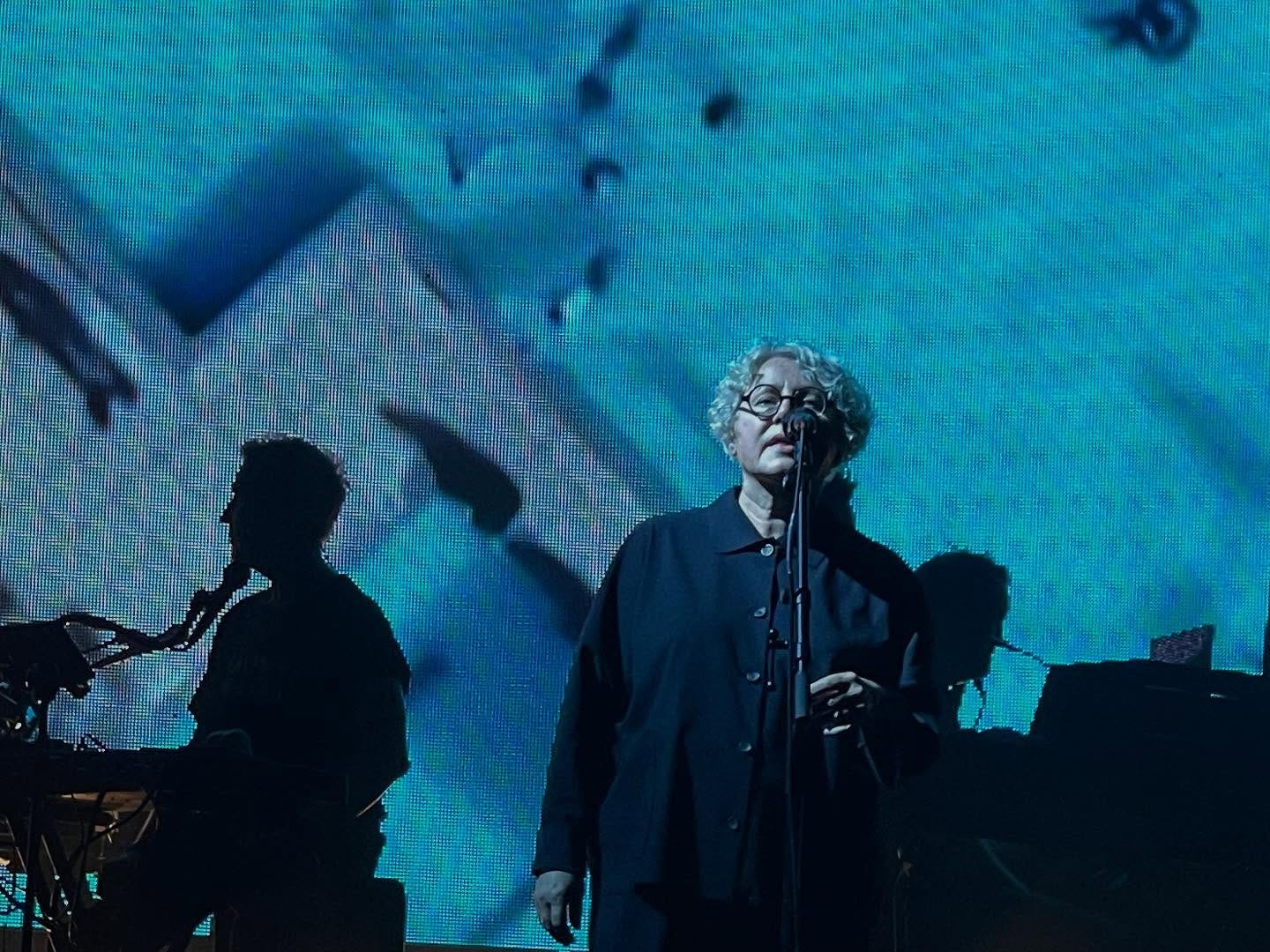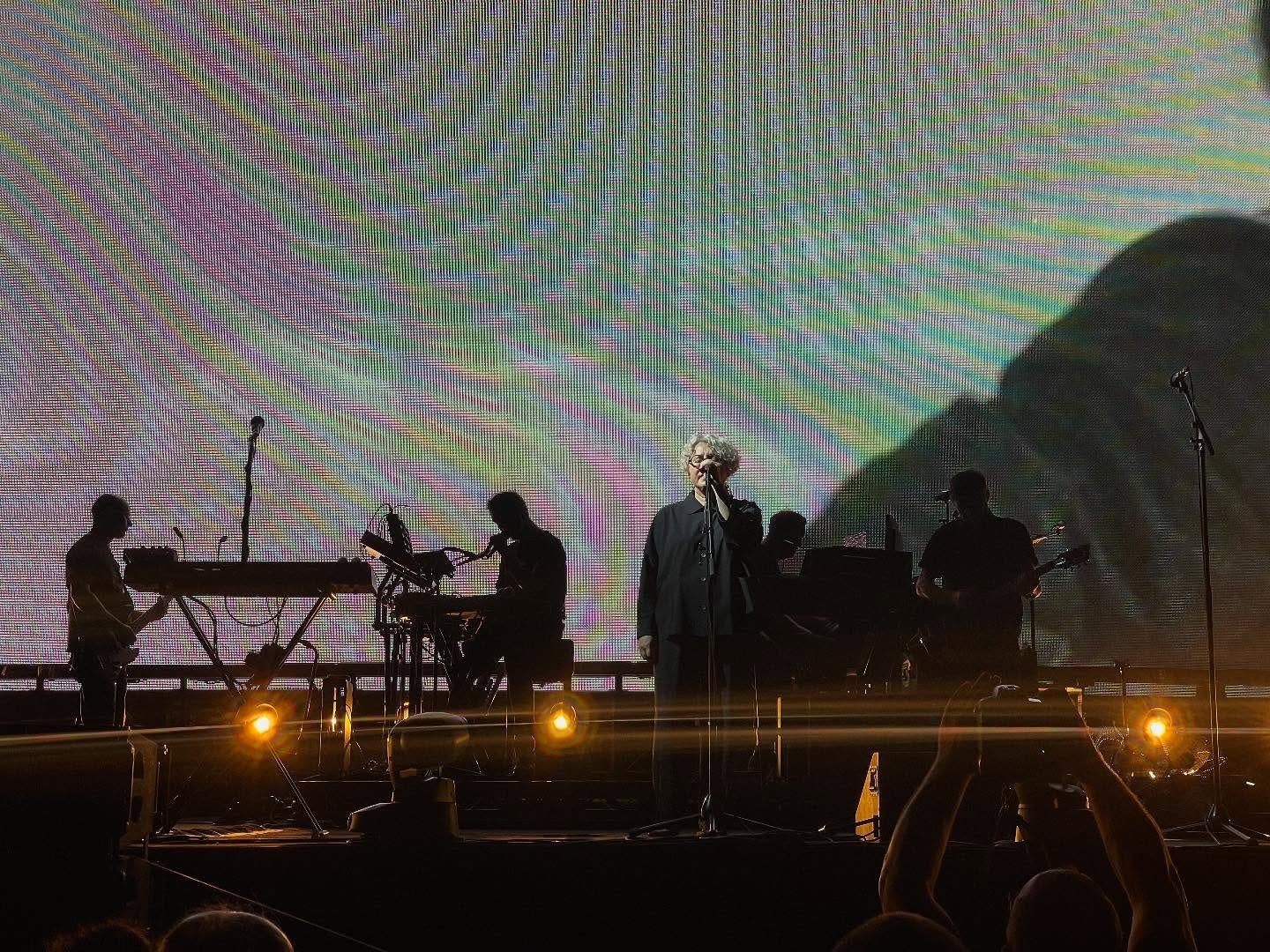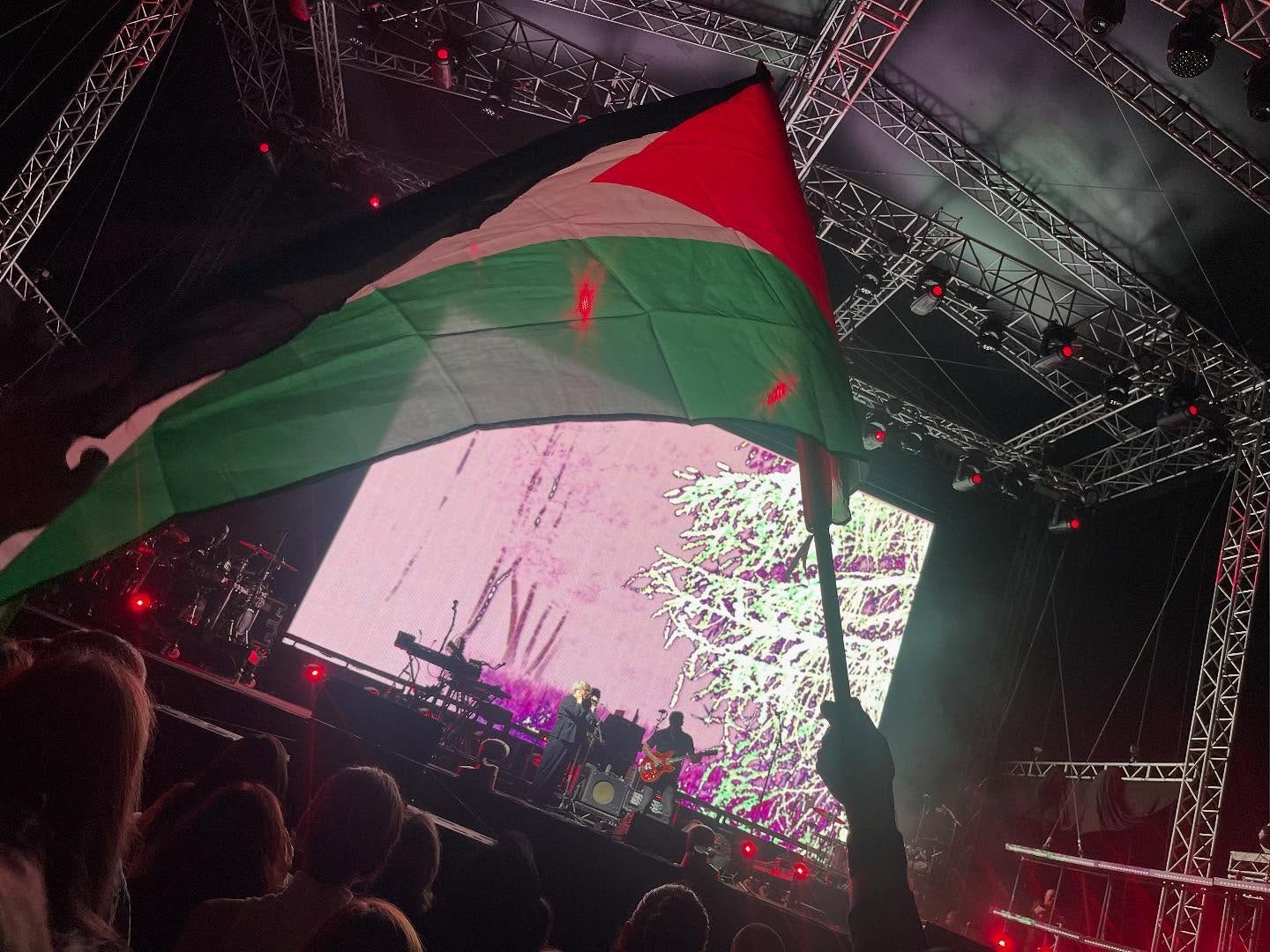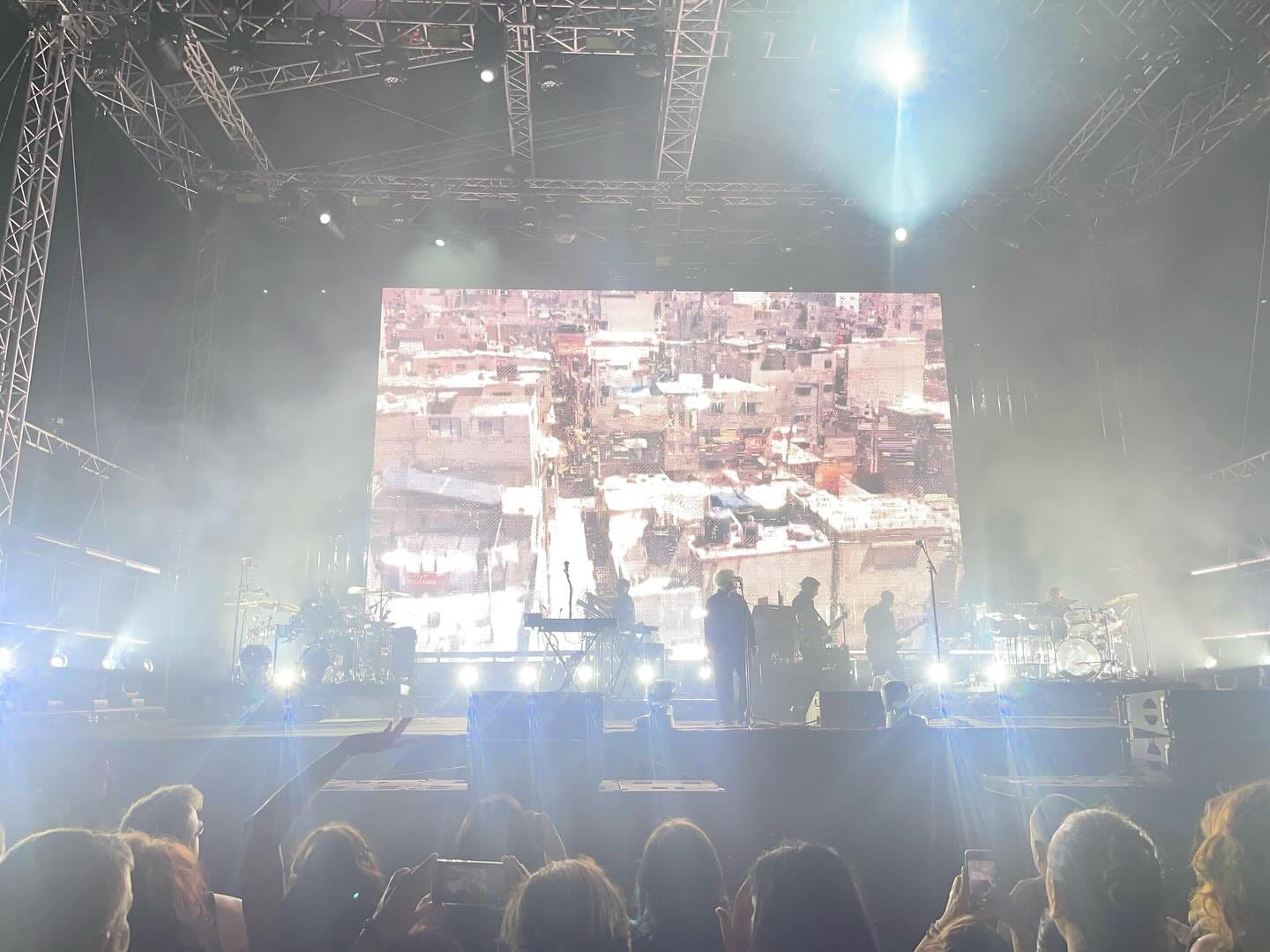Artist: Massive Attack
Venue: ARM Stadium
Event: Skopje Calling 2025
Location: Skopje, Macedonia
Date: June 28, 2025
Welcome to Vintage Cafe.
This is my personal corner for sharing music, books, films, travel, and the stories that stay with me. Every post is written with care, like a letter to a friend. Think of it as a slow conversation over coffee.
This June marks three years of writing, reflecting, and connecting with kindred spirits. To celebrate, I’m offering 20% off to new paid subscribers — a small thank you and an invitation to join the inner circle.
Paid subscribers get access to bonus posts, behind-the-scenes reflections, and deeper dives into the music and moments I don’t share anywhere else. Whether you're reading everything or just stopping by, I’m truly glad you’re here.
There are concerts that entertain, offering a joyful escape from daily life, and then there are concerts that challenge, confronting the audience with difficult truths, forcing them to think, feel, and engage with the world in ways they might not have expected. Massive Attack’s return to Skopje for the opening night of Skopje Calling 2025, organized by Avalon Production, was the latter—a night of powerful music layered with even more powerful messages.
The Crowd. Photo by Beba
The evening began on a different note, with local singer-songwriter Dina Jashari opening the show. Her presence was warm and unassuming, her sound playful and melodic. Her set may have been short, but it was enough to remind us that a new generation of Macedonian artists is steadily making its voice heard. With a new album out and a growing regional profile, she handled the stadium setting with grace.
Massive Attack took the stage not with a song, but with a wall of words. News headlines, scrolling messages, translated into Macedonian Cyrillic, flickered across towering screens. War, surveillance, data, power—it was clear from the first moment that this was not going to be an ordinary concert. This was a statement. The effect was disorienting. It was like stepping into the fevered mind of a dystopian oracle—and the beat hadn’t even dropped yet.
The show opened not with music, but with flickering visual noise: rolling headlines, data points, and surveillance imagery, all translated into Macedonian Cyrillic. The effect was disorienting. Snippets of news stories and slogans whirred past: war zones, climate collapse, technological dominance, government doublespeak, facial recognition tech, media manipulation, and surveillance culture. It was like stepping into the fevered mind of a dystopian oracle—and the beat hadn’t even dropped yet.
Photo by Martin Georgievski
Photo by Beba
When it did, it came through a haunting rendering of “In My Mind”, slowly bleeding into “Risingson”. Robert Del Naja’s voice was steady, but the real power came from the towering visuals behind him: collapsing buildings, crying children, burning skies. Gaza and Ukraine loomed large throughout the night, the images of destruction paired with bleak statistics and media headlines. At one point, a massive screen simply read: “Ceasefire Now.”
This wasn’t just a gesture. It was the emotional and visual backbone of the performance. Massive Attack were not here to entertain. They were here to provoke, to mourn, to bear witness. Del Naja’s statement midway through the set—“Every song tonight is in solidarity with the people of Palestine”—was not performative. It was echoed in every beat and every pixel.
Photo by Martin Georgievski
As the band moved through “Girl I Love You” (with Horace Andy), “Black Milk” (sung by the ethereal Elizabeth Fraser), and “Take It There” (featuring Daddy G), the screen never went quiet. Whether it was Adam Curtis footage, drone images of decimated neighborhoods, or Orwellian slogans about data and power, the atmosphere was relentlessly urgent. And deeply dystopian.
One of the most gut-wrenching moments came during “Inertia Creeps”. The screen flashed death tolls and destroyed hospitals in Gaza and Ukraine. There was no poetic framing. Just facts. Painful, necessary facts. It was as if the band were pleading with the audience to see, to feel, to stop looking away. Apart from tackling difficult subjects, another target the band aimed at was human apathy. It was a reminder that empathy, too, is an act of resistance.
Fraser’s return for Tim Buckley’s classic “Song to the Siren” was a brief moment of aching beauty, her voice fragile and pure, cutting through the weight of the world like a prayer. I’ve always loved her original rendition, a true gem dating back to 1984 with This Mortal Coil, and it felt like a privilege to experience it live. It was as if a secret had finally been spoken aloud. Her delivery was emotionally transparent, as if she were singing directly to each of us. The song didn’t rescue the world, but for a few minutes, it reminded us of what’s worth saving.
Photographs by Martin Georgievski
And then Deborah Miller brought the full force of “Safe From Harm” and “Unfinished Sympathy”, her vocals soaring over a crowd now visibly moved—some dancing, some swaying, others standing still, lost in thought.
Their choice to close with “Teardrop,” arguably one of their most beloved tracks, was both a climax and a benediction. Fraser’s voice floated across the stadium like smoke, soft but unshakable. Behind her, the screen pulsed with imagery: scorched buildings, crumbling lives, the cold architecture of surveillance.
It was a moment suspended in contradiction: a song about vulnerability and grief, performed in front of images that spoke of devastation on a massive scale. As Fraser sang of fractured intimacy—“love, love is a verb… love is a doing word”—the screens behind her told of a world where love was ruptured by violence, where homes had been reduced to ash, where tenderness seemed like a distant dream. The stark juxtaposition lent new weight to the song’s already aching melody.
Photographs by Martin Georgievski
But her voice offered something else—a human touch, ephemeral and warm, rising above the wreckage. The lyrics, poetic and restrained, carried a depth that resonated differently in this setting. “Teardrop on the fire,” she sang, and it felt less like a metaphor and more like a prophecy.
At a time when many artists remain silent, Massive Attack continues to use their platform with clarity and courage. Their show in Skopje was protest art at its most visceral, a lament for the innocent, and a mirror held up to a world in crisis. It was a concert that didn’t just move the body, but stirred the mind and the conscience.
If you came for nostalgia, you may have left unsettled. But if you came seeking truth or at least the courage to face it, then you got exactly what you needed.





